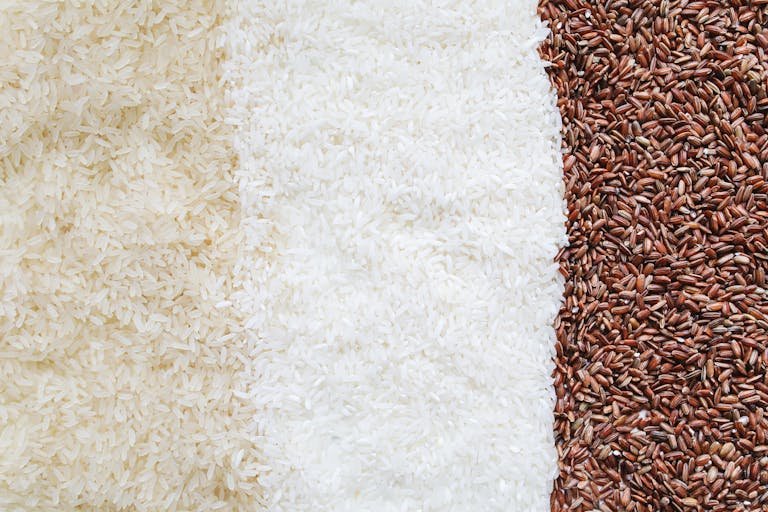Bariatric Meal Plan Guide- Important Post-Surgery Goodness
A bariatric meal plan is essential for individuals who have undergone bariatric surgery, which aids in significant weight loss by altering the digestive system. The importance of a well-structured bariatric meal plan cannot be overstated, as it ensures that patients receive adequate nutrition while adhering to the dietary restrictions necessary for recovery and long-term health. This guide aims to thoroughly understand a bariatric meal plan, its benefits, and practical tips for successful implementation.
The Importance of a Bariatric Meal Plan
Bariatric surgery is a life-changing procedure that requires a permanent commitment to a healthy lifestyle. A bariatric meal plan plays a crucial role in:
- Ensuring proper healing post-surgery
- Preventing nutritional deficiencies
- Supporting sustained weight loss
- Enhancing overall health and well-being
Following a bariatric meal plan helps patients achieve their health goals by promoting balanced eating habits tailored to their new digestive capabilities.
Key Components of a Bariatric Meal Plan
1. Phased Approach to Eating

A bariatric meal plan typically follows a phased approach to reintroduce foods gradually:
Phase 1: Liquid Diet
- Duration: First few days post-surgery
- Examples: Broth, sugar-free gelatin, and clear protein drinks
- Purpose: To keep the stomach hydrated and provide basic nutrients without straining the digestive system
Phase 2: Pureed Foods
- Duration: 1-2 weeks
- Examples: Pureed vegetables, blended meats, and smooth yogurt
- Purpose: To ease the stomach into handling slightly more complex foods while ensuring smooth textures to avoid complications
Phase 3: Soft Foods
- Duration: 3-4 weeks
- Examples: Scrambled eggs, soft fruits, and cooked vegetables
- Purpose: To transition to more solid foods with a soft texture, providing more variety and nutrition
Phase 4: Regular Diet
- Duration: Ongoing
- Examples: Lean proteins, whole grains, and fresh produce
- Purpose: To establish a long-term healthy eating pattern that supports sustained weight loss and nutritional adequacy
2. Macronutrient Focus

Protein
- Importance: Essential for healing and muscle maintenance
- Sources: Lean meats, eggs, low-fat dairy, and protein supplements
- Recommended Intake: Aim for 60-80 grams of protein daily
Carbohydrates
- Importance: Provide energy and essential nutrients
- Sources: Whole grains, vegetables, and fruits
- Recommended Intake: Focus on complex carbohydrates and fiber-rich foods
Fats
- Importance: Necessary for vitamin absorption and overall health
- Sources: Healthy fats such as avocados, nuts, and olive oil
- Recommended Intake: Limit intake to avoid gastrointestinal issues
3. Hydration

Staying hydrated is crucial, especially post-surgery. Patients should aim for at least 64 ounces of water daily. It’s recommended to drink fluids between meals to avoid overfilling the stomach.
4. Portion Control and Meal Frequency
Smaller, more frequent meals are key to avoiding overeating and ensuring the stomach can handle the food intake. Typically, patients should aim for 5-6 small meals throughout the day.
5. Vitamins and Supplements

Due to the reduced food intake and altered digestion, bariatric patients often require additional vitamins and supplements, such as:
- Multivitamins: To cover basic nutritional needs
- Calcium Citrate: Essential for bone health
- Vitamin D: Supports calcium absorption
- Vitamin B12: Prevents deficiencies due to altered digestion
Practical Examples
Sample Meal Plan
Breakfast: Scrambled eggs with spinach
Snack: Greek yogurt with berries
Lunch: Grilled chicken with steamed vegetables
Snack: Cottage cheese with sliced peaches
Dinner: Baked fish with quinoa and broccoli
Snack: Protein shake
Case Studies and Data
Studies have shown that patients adhering to a structured bariatric meal plan experience significantly better weight loss and nutritional health outcomes. For instance, a study published in the Journal of Obesity found that bariatric patients following a high-protein, low-fat diet lost 15% more weight over 12 months than those who did not adhere strictly to the dietary guidelines.
Conclusion
A bariatric meal plan is a fundamental component of the post-surgery recovery process and long-term weight management. By understanding and implementing the key aspects of this meal plan, patients can ensure they receive the necessary nutrients while supporting their weight loss journey.
Consulting with a registered dietitian can provide personalized guidance and support for those considering bariatric surgery or looking to optimize their post-surgery diet. Embracing a bariatric meal plan enhances physical health and fosters a sense of control and well-being.
Further Reading and Actions
- Explore more about bariatric nutrition: Bariatric Surgery Source
- Consult with a dietitian: Find a specialist through the Academy of Nutrition and Dietetics
- Join a support group: Connect with others on a similar journey through online forums and local meetups
By committing to a well-structured bariatric meal plan, patients can achieve their health goals and enjoy a better quality of life.







